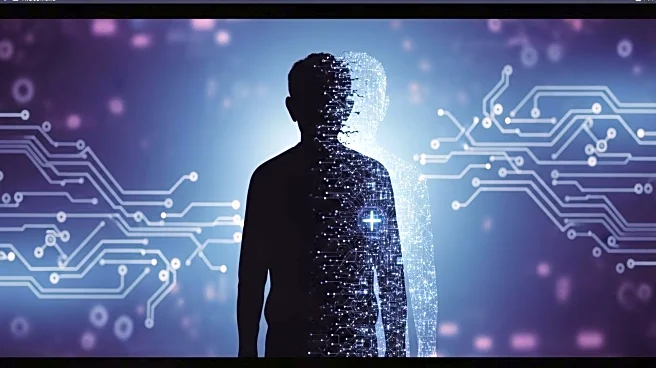What's Happening?
Recent advancements in AI technology have enabled individuals to create digital avatars of deceased loved ones, sparking discussions about the ethical implications of such practices. The technology, which utilizes large language models like ChatGPT, allows users to input personal data and receive responses that mimic the personality and voice of the deceased. This capability has been demonstrated in various cases, including a man who interacted with a chatbot version of his deceased father, and a mother who engaged with a digital avatar of her late daughter using virtual reality. While the technology offers a form of comfort and connection, it also raises questions about the authenticity and emotional impact of interacting with AI-generated representations of the deceased.
Why It's Important?
The ability to recreate deceased individuals through AI technology has significant implications for society, particularly in the realms of grief and mental health. On one hand, it provides a novel way for individuals to cope with loss and maintain a connection with loved ones. On the other hand, it poses ethical challenges, such as the potential for emotional manipulation and the blurring of lines between reality and digital simulation. The technology's reliance on vast amounts of data also raises privacy concerns, as it requires access to personal information to generate accurate representations. As AI continues to evolve, it is crucial to address these ethical and privacy issues to ensure responsible use of such technology.
What's Next?
As AI technology becomes more sophisticated, it is likely that the use of digital avatars for deceased individuals will become more widespread. This trend may prompt further discussions among ethicists, technologists, and policymakers about the appropriate boundaries and regulations for such practices. Additionally, there may be increased demand for guidelines on how to ethically manage and interact with AI-generated representations of the deceased. The technology could also lead to new therapeutic approaches for grief counseling, offering a unique tool for mental health professionals to support individuals coping with loss.
Beyond the Headlines
The use of AI to recreate deceased individuals touches on deeper philosophical questions about the nature of identity and the human experience. It challenges traditional notions of life and death, prompting reflection on what it means to be human in an increasingly digital world. The technology also highlights the tension between technological advancement and ethical responsibility, underscoring the need for ongoing dialogue about the role of AI in society. As these digital avatars become more lifelike, they may influence cultural perceptions of mortality and the afterlife, potentially reshaping societal attitudes toward death and grieving.









